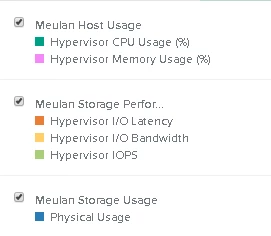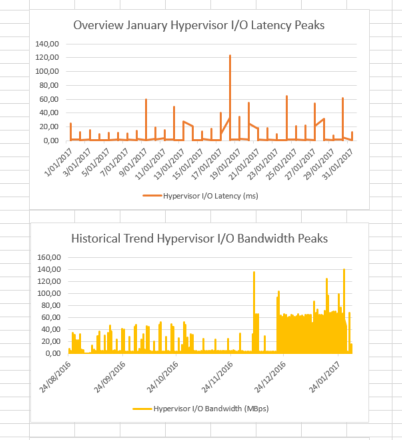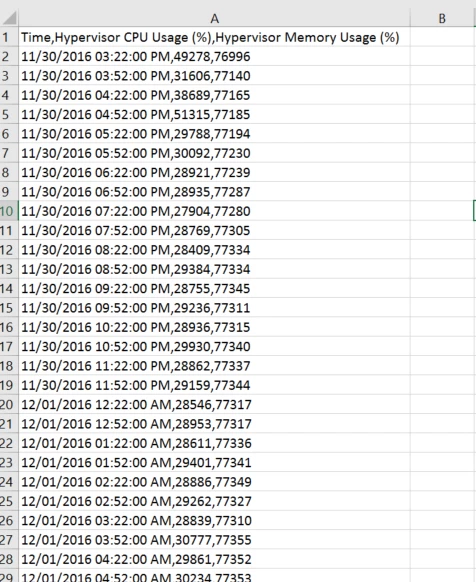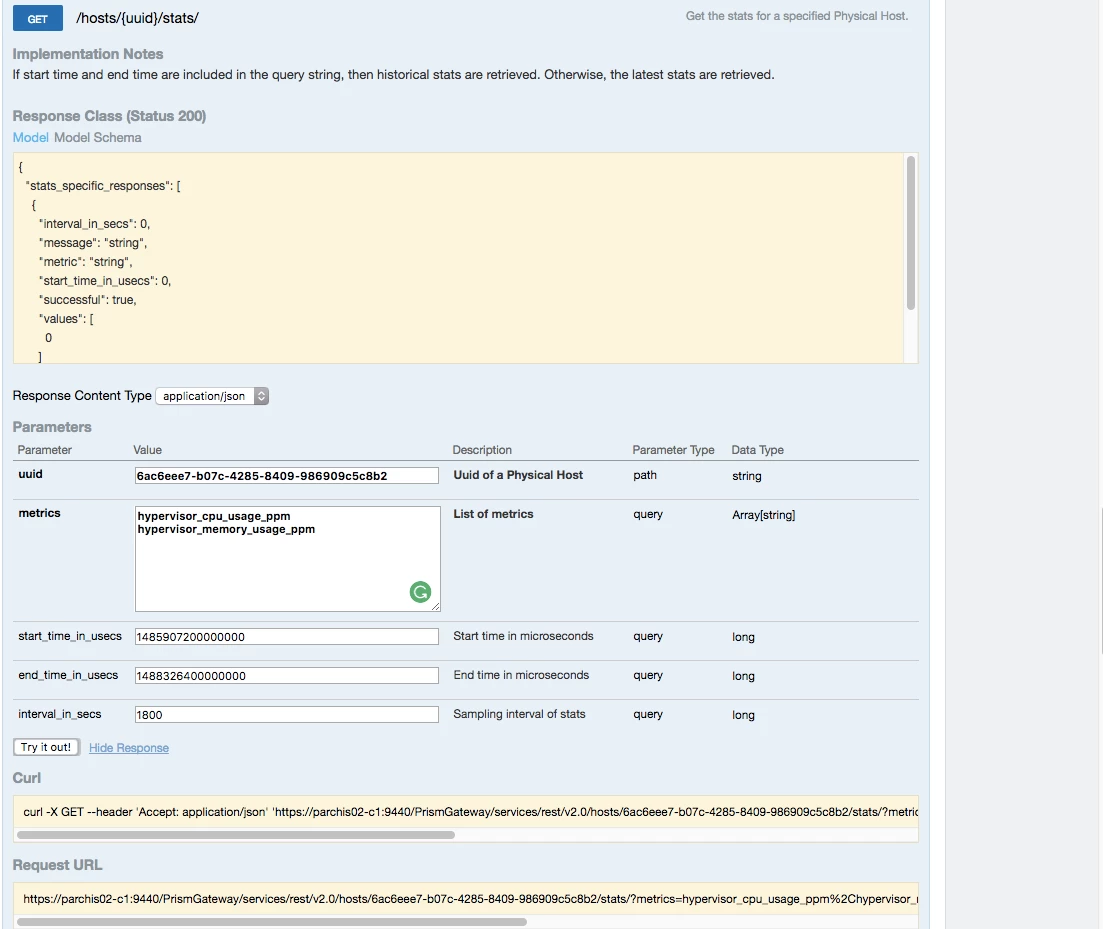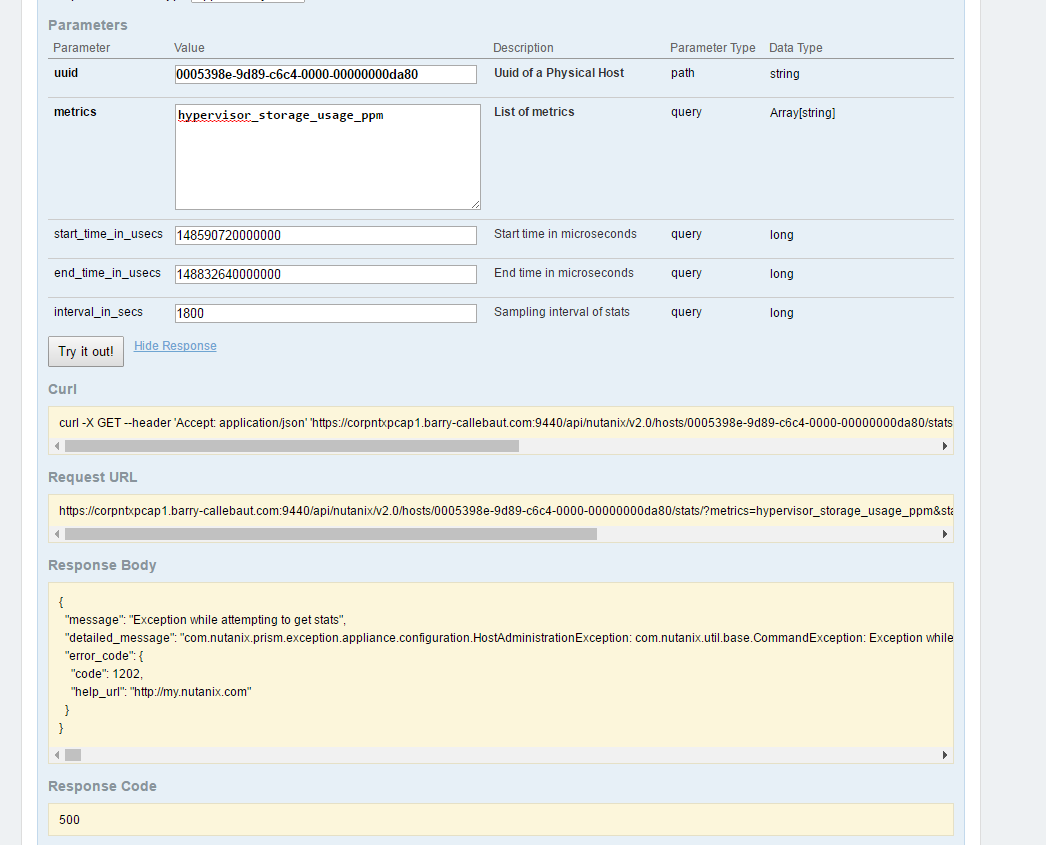Hello everyone,
I have a question concerning the analysis tab on the Prism Element UI.
To get started i will shortly explain what our current situation is:
Last year we sold some Nutanix boxes to a customer. In this contract we also included monitor/management services. As an agreement, every month we schedule a meeting with our customer where we evaluate performance of the nutanix clusters. There are 3 main fields we focus on during the meeting; Cluster host usage, storage performance and storage usage. (See picture below)
In this report we include all the data we extracted from the analysis tab on Prism Element. We import this data into excel and pour that data into graphs. (See picture below).
This is where our problems arise.
As you can see we need both monthly & lifetime graphs from our data. In order to get to this graph we have to:
-export the data from Prism Element
*You cannot select begin & enddate so after we export we have to manually trim the data to our needs and import this from one excel to another which takes a massive amount of time to do.
Picture of raw data from an exported .csv file:
*The date format in the raw data is not compatible with excel, so we have convert the dates to another format.
*We need our data in Percentile and we also need daily averages for every last month.
*For latency, throughput and bandwidth we also need to format the data in excel to get the
graphs.
Conclusion: As you can see we need to invest huge amounts of time into something that should be simple out of the box. Especially when you already have an implemented analysis tab.
So does anyone here has experienced the same problem?
Is there a possible solution to this?
Maybe utilizing Rest API's?
Thanks in advance!
Seba
Solved
Analysis tab data export question
Best answer by harryhy
Hi sverhoevne,
Here is the screenshot of the example of extract the cpu and memory usage from Feb 1, 2017 to Feb 28, 2017 with the interval of 30 minutes. The star_time and end_time is the epoch time is microseconds. In this case, the start_time is 1485907200000000 and the end_time is 1488326400000000. You can refer to https://www.epochconverter.com for the conversion and language-specific functions.
Here is the screenshot of the example of extract the cpu and memory usage from Feb 1, 2017 to Feb 28, 2017 with the interval of 30 minutes. The star_time and end_time is the epoch time is microseconds. In this case, the start_time is 1485907200000000 and the end_time is 1488326400000000. You can refer to https://www.epochconverter.com for the conversion and language-specific functions.
This topic has been closed for replies.
Enter your E-mail address. We'll send you an e-mail with instructions to reset your password.


